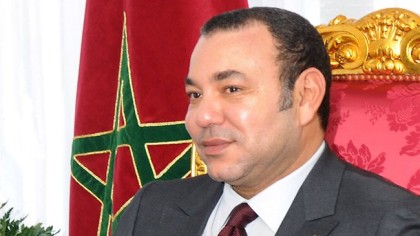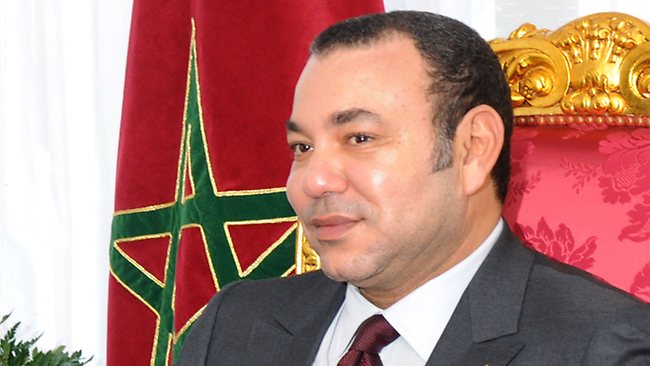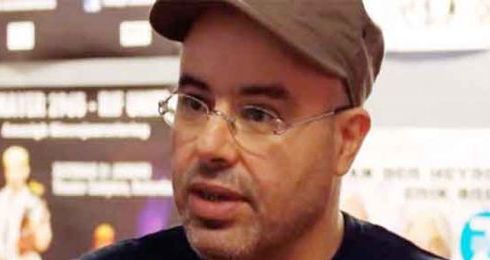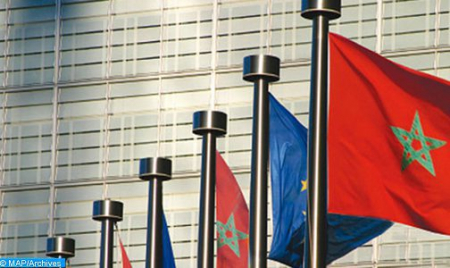 King Mohammed VI of Morocco called Tuesday for the elaboration of “an effective, integrated national land policy” to overcome the impediments hampering the full development of land zoning in the North African country
King Mohammed VI of Morocco called Tuesday for the elaboration of “an effective, integrated national land policy” to overcome the impediments hampering the full development of land zoning in the North African country
In his address to the national conference in the resort town of Skhirate (south of Rabat) on the “State land policy and its role in economic and social development”, the Sovereign stressed the importance of the subject matter in unleashing the country’s dynamic, comprehensive development process.
“I hope this meeting will give stakeholders the opportunity to examine, together, the current situation in this vital sector”, said King Mohammed VI calling on participants “to build on the virtues of dialogue and collective thinking and to adopt the participatory approach we have been using – as an irreversible policy – to address the nation’s major issues”.
“As you know, land is a strategic factor of production as well as a lever for the achievement of multi-dimensional sustainable development. Access to land is, therefore, the main catalyst for productive investment, which generates incomes, creates job opportunities and makes it possible to implement projects in various fields: industry, agriculture, tourism, the service sector, etc”, added the Sovereign.
Moreover, “it is a necessary engine for the development of the national economy because it provides the basic platform for infrastructure and public facility development. The country’s public policy in the areas of urban planning and local development is also directly related to the land policy. The latter is also a fundamental mechanism through which the citizens can fulfil their right to housing”, underlined King Mohammed VI.
“Given the cross-cutting nature of the land sector, all stakeholders are concerned by the constraints and challenges impacting this field. For this reason, a comprehensive approach should be used to tackle those constraints and challenges, keeping in mind the legal, institutional, organizational and procedural dimensions”, said the Sovereign, noting that the sector’s specificities, its complex and interrelated nature should also be considered.
He also said that “the legal aspect is one of the main challenges that have to be addressed to upgrade the land sector because of the diversity of the systems involved and the obsolete nature of certain legal texts, not to mention the diversity of the institutional actors in charge of managing this sector”.
“I therefore call for a review of the legal texts governing the sector – the public as well as the private aspects. The aim is to protect and promote land assets, through improved governance and simpler organizational procedures to make sure land use contributes to consolidating the dynamism of the country’s social and economic development”, said King Mohammed VI.
He also called for a reform of the communal land ownership (Sulaliyat) system. “I am glad to see that a national dialogue on the subject has started and I hope the results and conclusions of this dialogue will be leveraged to rehabilitate communal land, so it may contribute to the development process and serve as a means whereby right holders can be involved in the nation’s dynamic process, in keeping with the principles of social justice and fairness, regardless of any outdated considerations”, said the Moroccan Monarch.
“I also call for joint efforts to ensure the success of the titling process of communal land for the benefit of right holders within irrigated perimeters and free of charge”, he said, urging “the government authorities concerned to speed up procedures for the settlement of the legal status of communal land to make sure it can be effectively integrated into the country’s social and economic development process”.
To fulfil the aspirations expressed by Sulaliyate groups and the various social and economic actors during the national dialogue on communal land held in 2014, “it is necessary to reconsider the related legal and institutional framework and to simplify procedures for the optimal management of this land”, stressed the Moroccan King.
“Land plays a key role in town and urban planning. Land development and town planning mechanisms and documents should serve the interests of the citizens”, underlined the Sovereign in his address, stressing the need for the appropriate and balanced urban space management, which should be based on “social justice and should not become an instrument for speculation, which is inconsistent with the citizens’ interests”.
King Mohammed VI also called for speeding up the adoption of the new town planning code and for new mechanisms to control the land market and combat speculation. “I also urge the government to continue the reform of land management systems governing investment in agriculture to make sure land development plays a key role in promoting agriculture and serves as a lever for rural development, which is one of our priorities”, said the Moroccan Sovereign.
“I should like to emphasize the importance of developing state-owned agricultural land properly and making the most of it. Thanks to a partnership between the State and the private sector, we were able to achieve very interesting socio-economic outcomes that contributed to the development of the agricultural sector”, stressed King Mohammed VI, hailing these accomplishments which helped create added value, generating significant wealth and many job opportunities.



